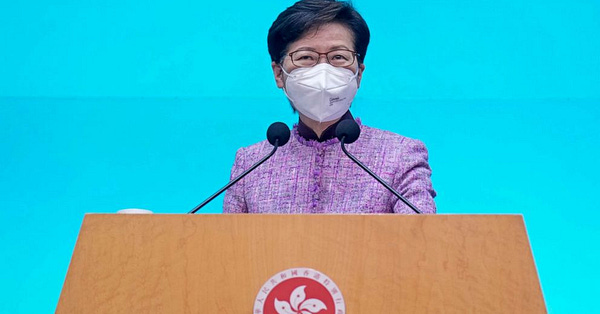Just when you thought the news from China couldn’t get any stranger, look at what’s happening this week: Hong Kong is slated to be under even stricter rule, a cyberattack on Ukraine points to Beijing, signs of international injustice for a former TV anchor, the strange lives of livestreamers and influencers, and the absurdity of a harder lockdown in Shanghai.
Turnover in Hong Kong


The woman who presided over Hong Kong during a period of increased Chinese control won’t seek a second term. Beijing will likely approve pro-democracy protester enemy John Lee as successor. Lam’s announcement followed the U.K. withdrawing judges from Hong Kong’s top court, a move which she decried for breaking their impartiality.
Not much neutrality here


Chinese Attacks on Ukrainian Government, Medical & Education Networks” was the heading of the memos obtained by the Times of London to break the story of Ukraine’s facilities being hacked in the build-up to Russia’s invasion. Chinese state media has yet to assert a side in the conflict, but President Xi may soon be entering the dialogue of war.
Tensions around a trial


Cheng Lei is accused of illegally supplying state secrets overseas while working as a business anchor for state media network CGTN. But as an Australian citizen, a consular agreement technically allows those officials to attend her hearings. The barring of Australia’s entire embassy staff from the proceedings isn’t a promising sign after her 19-month detainment.
China’s selfie economics
Chinese photographer Huang Qingjun pointed his camera at younger people pointing cameras at themselves, and making money as livestreaming stars, which is a practice that Beijing is now cracking down on. Associated Press recently reported on how some social media stars purporting to be independent influencers are propagandists for the state.
Quarantined into absurdity

The spring 2022 coronavirus lockdown continues in Shanghai, where authorities bowed to public pressure by letting parents stay with infected kids. Stories coming out of this phase seem more dystopian than any of this decade, including reports of harsh robot dogs and drones issuing instructions for 26 million people to stay home until further notice.





